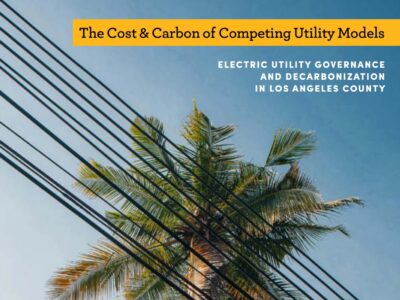Post-Tsunami Japan Teaches the World About Energy Within Limits
 Earlier this summer, I accompanied a class of renewable energy law students to a home in Vermont that is “off the grid”. The family lives quite comfortably – television, microwave oven, electric washing machine, sizable refrigerator. With the exception of a small diesel generator, which they use once or twice a year, they derive all of their electric power from a set of photovoltaic panels and a series of lead acid batteries, protected by a wooden box in the basement. Of course, Vermont is hardly the solar capital of the world. During the coldest winter months, the owners must don snowshoes and walk into the field where the arrays are mounted, in order to brush off the accumulated snow. Yet better than 99 percent of the time, the solar collectors and the batteries get the job done.
Earlier this summer, I accompanied a class of renewable energy law students to a home in Vermont that is “off the grid”. The family lives quite comfortably – television, microwave oven, electric washing machine, sizable refrigerator. With the exception of a small diesel generator, which they use once or twice a year, they derive all of their electric power from a set of photovoltaic panels and a series of lead acid batteries, protected by a wooden box in the basement. Of course, Vermont is hardly the solar capital of the world. During the coldest winter months, the owners must don snowshoes and walk into the field where the arrays are mounted, in order to brush off the accumulated snow. Yet better than 99 percent of the time, the solar collectors and the batteries get the job done.
While they don’t feel that they sacrifice comfort or convenience, the Vermonters know that they are limited to the power in that box in the basement, which helps them to remember to turn off extra lights and to buy the most efficient appliances.
I thought of that family while reading in the New York Times about conservation efforts in Japan in the wake of the nuclear power disaster. The Times reports that while the average Japanese consumer normally uses about half as much power as counterparts in the U.S., residents in Japan have reduced consumption even further in response to the national crisis. It has become almost a moral imperative, as building owners would be ashamed to keep lights glowing through the night, and overly-cooled offices and stores are a sign of irresponsibility. Japanese consumers understand that, at least for now, there are limits to power availability. They have adjusted, and life goes on.
Imagine if U.S. consumption were cut in half. Conceivably, since about fifty percent of our electricity comes from coal-fired power plants, we could shut down all of those plants, and dramatically reduce greenhouse gas emissions from stationary sources. We also could avoid tens of thousands of annual deaths related to the production and combustion of coal.
But with the exception of a few energy pioneers, we in the U.S. don’t think of our power availability as being limited to what can fit in a box. Flip a switch, and the power will flow. Keep the switch on, and the power will flow forever. Flip another switch. Add an Ipod. Keep the computer on 24/7. Put a spare refrigerator in the garage to keep the beer cold.
Maybe if we saw limits to the power we can use, we would ration the supplies intelligently without sacrificing comfort or convenience. Virtually or literally, maybe we should limit ourselves to using the power in the box.







Reader Comments